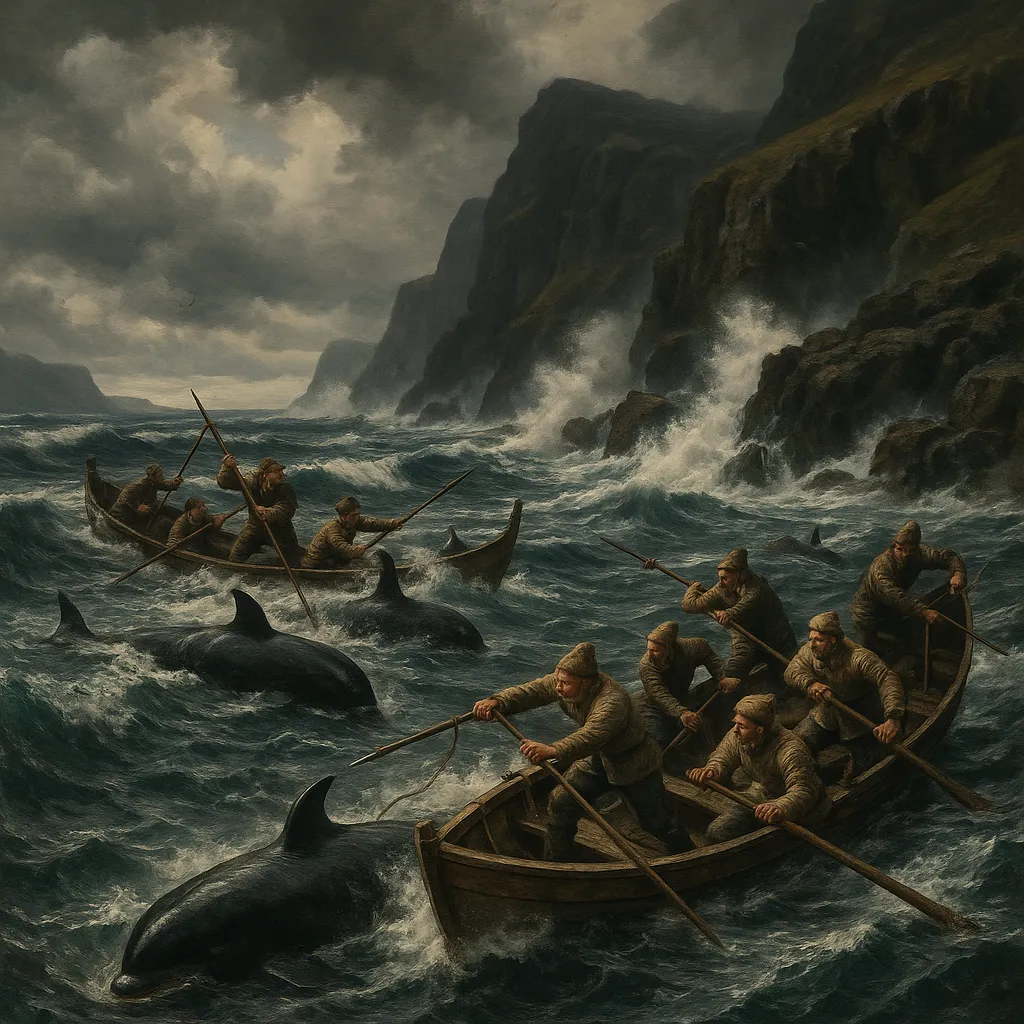International Outcry Grows Over Faroe Islands Whale Hunt

TÓRSHAVN, Faroe Islands - August 27, 2025
Animal welfare organisations have intensified calls for an international boycott of the Faroe Islands today, following the latest “grindadráp” pilot whale hunt, during which local fishermen slaughtered dozens of whales, including pregnant females and calves.
Stephen Price of the Captain Paul Watson Foundation and Sea Shepherd documented the hunt, revealing that more than 40 pilot whales were pursued and killed off the coast of Leynar over a 30-minute period, contradicting official Faroese statements that the drive hunt lasts only 15 minutes. Among the victims were at least 10 pregnant females, sparking condemnation over what critics describe as an outdated and brutal tradition. Sea Shepherd has urged tourists to avoid the islands and for retailers to boycott Faroese seafood until the practice is permanently halted.
In response to growing international pressure, the Faroese government has defended the hunt as cultural heritage, but critics argue modernised humane alternatives exist. Valentina Crast, Sea Shepherd’s Faroes Campaign Manager, appealed directly to island residents, calling for public denunciation of the grindadráp and highlighting hidden opposition within local communities.
Meanwhile, cultural life in Tórshavn proceeds with a series of events tonight:
- Málkafé, a weekly language-exchange café at the city library, welcomes internationals to practise Faroese between 17:00 and 19:00, organised by Red Cross volunteers in collaboration with the Býarbókasavnið public library.
- Barnasálmasangur, a children’s hymn singing concert, will be held at Vesturkirkjan church at 16:30 WEST, featuring local youth choirs performing traditional Faroese spiritual songs.
On the tourism front, National Geographic Traveller (UK) published a feature today showcasing Einar’s Distillery in Klaksvík, where generations-old brewing traditions have given rise to unique Faroese spirits. The article highlights how the distillery leverages the islands’ maritime climate-salt-laden air and stable temperatures-to mature whiskies and aquavits that are beginning to find international markets despite logistic challenges.
As debates over the grindadráp escalate, the juxtaposition of cultural celebrations and international scrutiny underscores the Faroe Islands’ struggle to balance heritage with modern ethical standards.
Categories
Beauty and fashion Business and finance Climate Entertainment Food and drink Games Health Hobbies and leisure Jobs and education Law and government Other Politics Science Shopping Sports Technology Travel and transportationRecent Posts
Tags